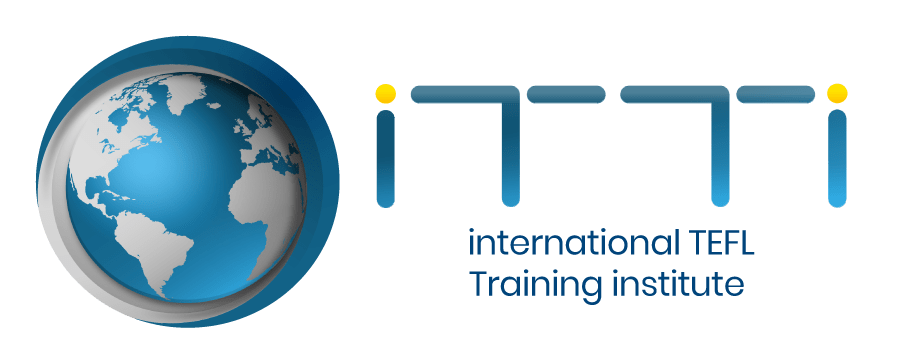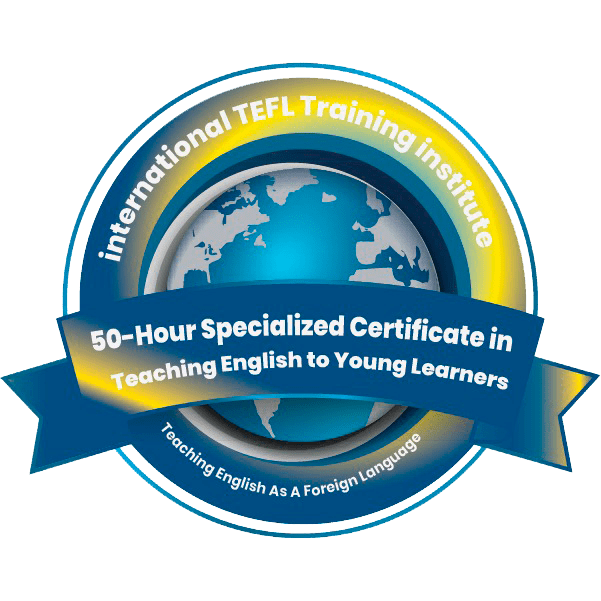• experienced and prospective teachers
• parents of young learners
• teachers who have experience teaching older learners
• individuals who are supervising teachers of young learners
• people who design EFL or ESL programs for young learners
THE CONTENT CONSIDERS … three different professional areas:
•instruction that is developmentally appropriate
•consideration of the abilities of native English speakers at the described age level
•the adaptation of ESL/EFL content for learners over 12 years of age to make it suitable for the younger learners
1. An introduction to teaching English, EFL or ESL to young learners and a brief overview of young learner development.
2. Throughout the program, reflection questions prompt the student to think about critical issues in young learner teaching, and tasks require the student to apply what they have learned to their own situation.
3. How to teach English to young learners who may have few on no literacy skills in their native language.
4. The TEFL course is loaded with practical illustrations from many course books and examples from authentic classroom situations.
5. How to effectively work with parents even if they do not speak English.
6. Dealing with classroom management, special needs children, the use of technology in the young learner instruction.
7. Each unit contains many suggestions for books, articles and web sites for resources and up-to-date information. It’s an endless resource for the teacher.
8. Besides a comprehensive listing of popular children TEFL songs, the last unit also contains a listing of definition of language, early childhood and education teaching terms.
Teach English to Young Learners
What Our Students Are Saying!
Let’s Do This!
Start Learning Today!

Teach English to Young Learners
LOOK INSIDE OUR BEST SPECIALIZED COURSE OF ENGLISH TEACHING FOR YOUNG ONLINE LEARNERS
Teach English to Young Learners
- Unit 1: Language and Children – Making the Match
- Unit 2: Teaching Language Skills: Listening
- Test: Units 1 & 2
- Unit 3: Teaching Language Skills: Speaking
- Unit 4: Teaching Language Skills: Reading
- Test: Units 3 & 4
- Unit 5: Teaching Language Skills: Writing
- Unit 6: Teaching Vocabulary to Young Learners
- Test: Units 5 & 6
- Unit 7: Evaluation & Assessment of Young Learners
- Unit 8: Working with Parents with or without English Skills
- Test: Units 7 & 8
- Unit 9: Classroom Management, Special Needs, and Other Key Issues
- Test: Final Test
- Assignment: Lesson Plan

MEET iTTi PARTNERS & TRAINERS
Teach English to Young Learners
FAQs
You must be at least 18 years old and proficient in English.
Yes! Students who are not native English speakers must demonstrate proficiency in English at the C1 level of English or higher.
No, you don’t. The course teaches you from scratch.
No, they won’t. There are laws in place that require 120-Hour TEFL/TESOL as the minimum education to obtain a work visa. Without a work visa, you will receive no benefits and have to work under the table. Benefits are free airfare, housing support, health insurance, vacation, and bonus pay.
There are children everywhere in the world. Young learner specialists are needed badly in many places—whether you go to South or North America, Africa, Europe, or even Australia.
By all means. Schools that specialize in young learners will be happy to employ you.
If you want to work independently, our organization can help you with an online platform and assist you in the development of a young-learner program. The sky is the limit.$95 is so little. There aren’t any installment payments possible.
Yes, there is. We’ll help you with resume setup, school lists in the country of your destination, and actual job leads as they reach our school.








